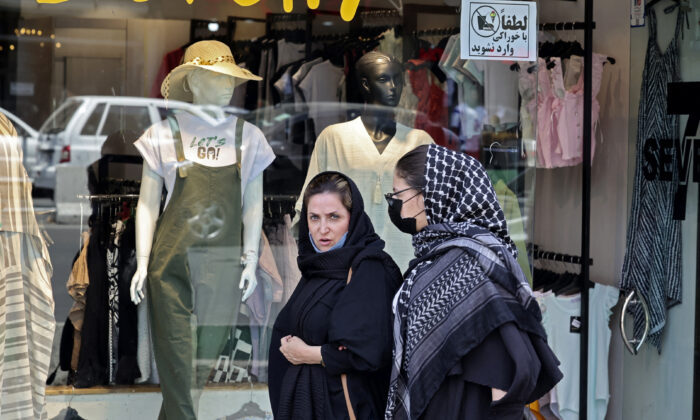Iran Delays Enforcement of Stricter Hijab Law
The legislation would have imposed prison sentences of up to 15 years for repeat offenders.
Iran’s government has halted plans to implement a controversial new law that would have resulted in women in the country facing up to 15 years in prison if they chose not to wear a head-covering hijab.
The mandatory law was initially approved by the country’s parliament in September 2023.
The decision to postpone the enforcement of the law came from the top executive, legislative, and judiciary bodies, Dabiri added.
Currently, it is deemed “not practical” to put this bill into effect, according to Dabiri, who did not provide further details.
The law under consideration significantly raises financial and social penalties for those who do not comply with the government’s strict dress code, which mandates that women wear a hijab, chador, or headscarf.
It introduces fines of $800 for first-time offenders and $1,500 for repeat offenders, followed by potential prison sentences of up to 15 years for individuals who violate the law a third time.
The legislation would have also held business owners accountable with fines and the risk of closure if they served women and girls without a hijab. Offenders could also face travel restrictions.
In addition, the measure would have encouraged business owners, taxi drivers, and foreign nationals, including the millions of Afghans residing in Iran, to report women and girls who do not wear a hijab to the authorities.
Iran’s President Says Legislation Is ‘Very Ambiguous’
It would have also granted police access to private surveillance footage from security forces, the Defense Ministry, and the national civilian nuclear agency.
Iranian President Masoud Pezeshkian, who would have been obligated to endorse the legislation within five days had it been approved by the government, expressed reservations about the law.
Amnesty International, along with other human rights groups, criticized the legislation.
Eltahawy urged the global community to pursue legal avenues to hold Iranian officials responsible for committing systematic and widespread human rights abuses against women and girls through the enforcement of compulsory veiling.
Many believed that if enforced, the legislation could have sparked protests similar to those that shook Iran in mid-September 2022 after the death of Mahsa Amini, a young Kurdish woman who died while in custody of Iranian authorities.
Amini, aged 22, was apprehended due to what police deemed as her “improper attire.”
The Associated Press contributed to this report.





